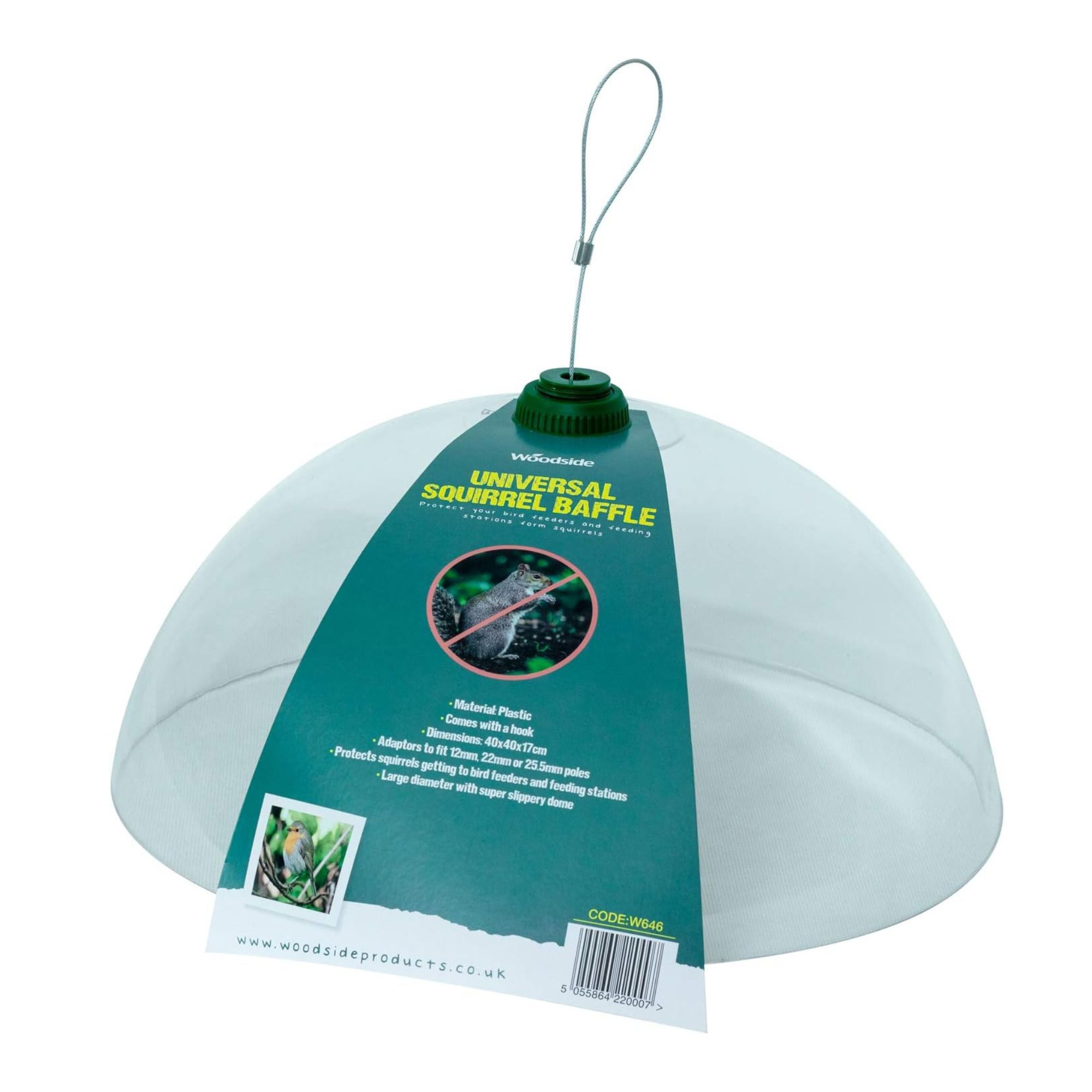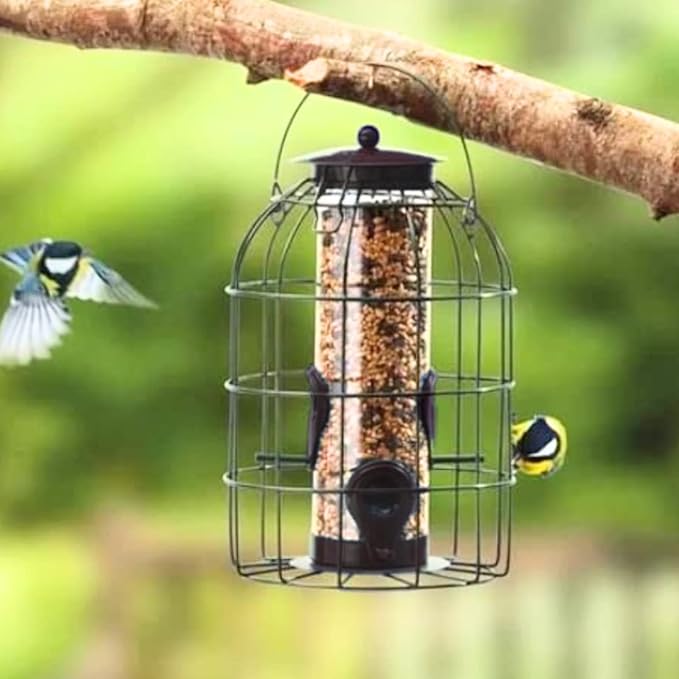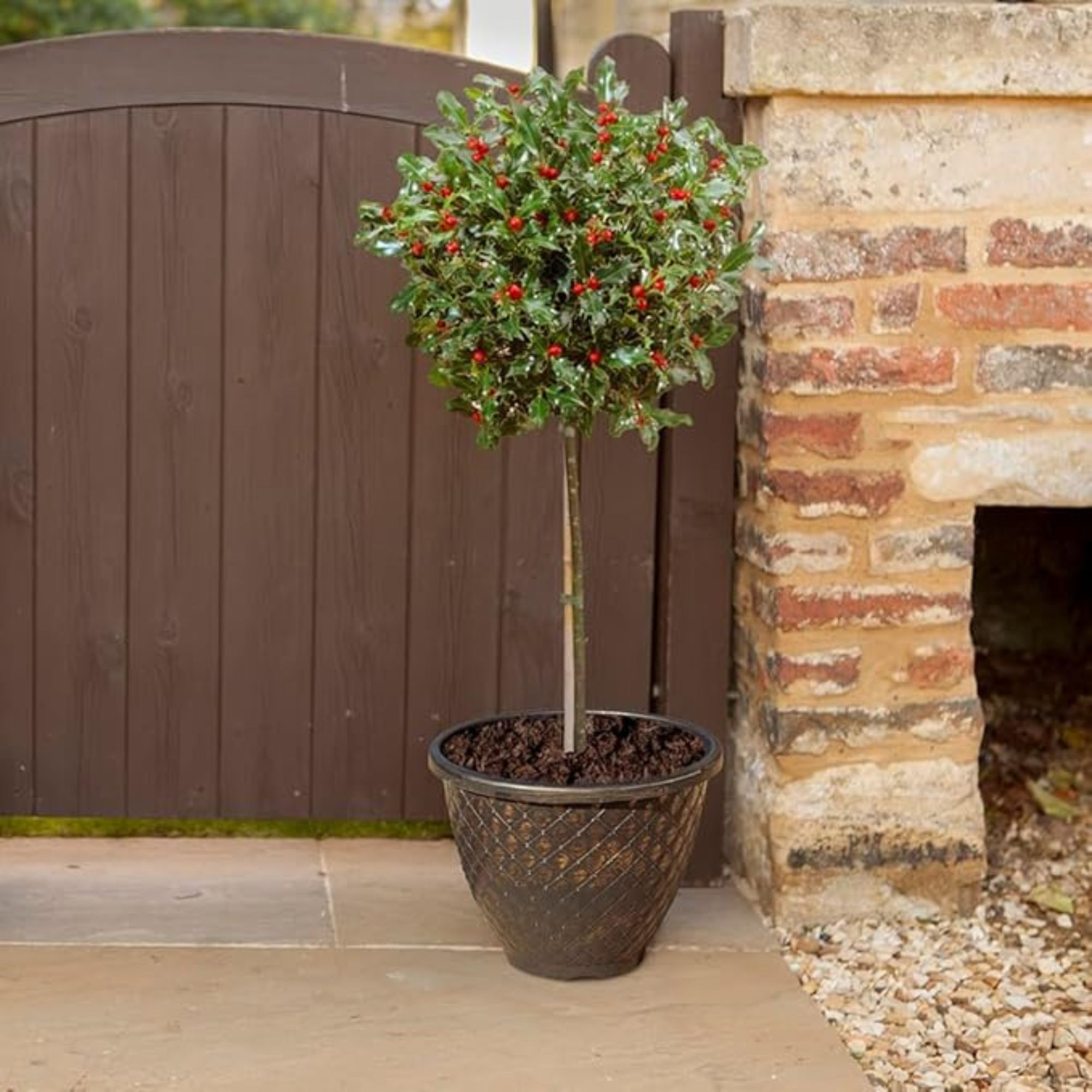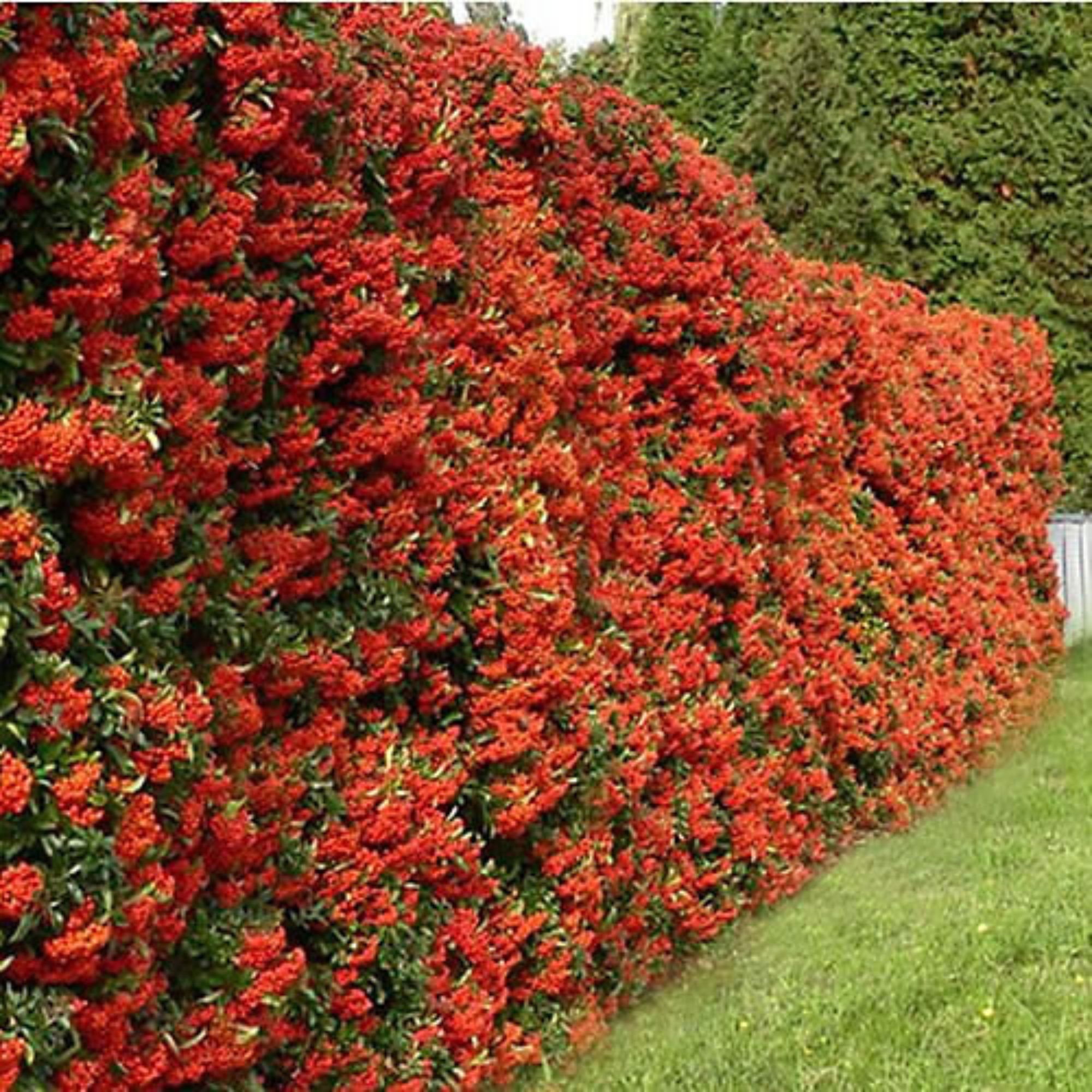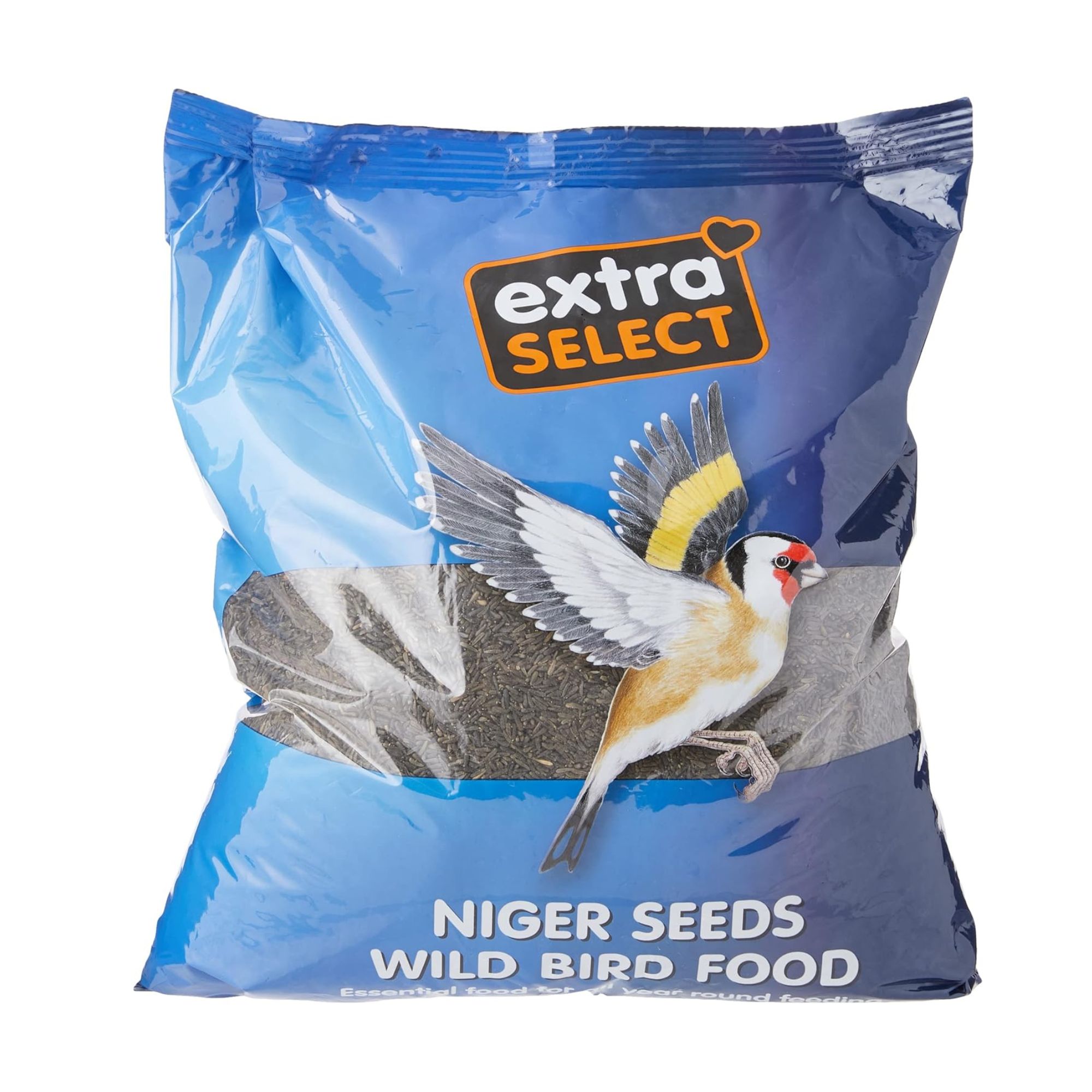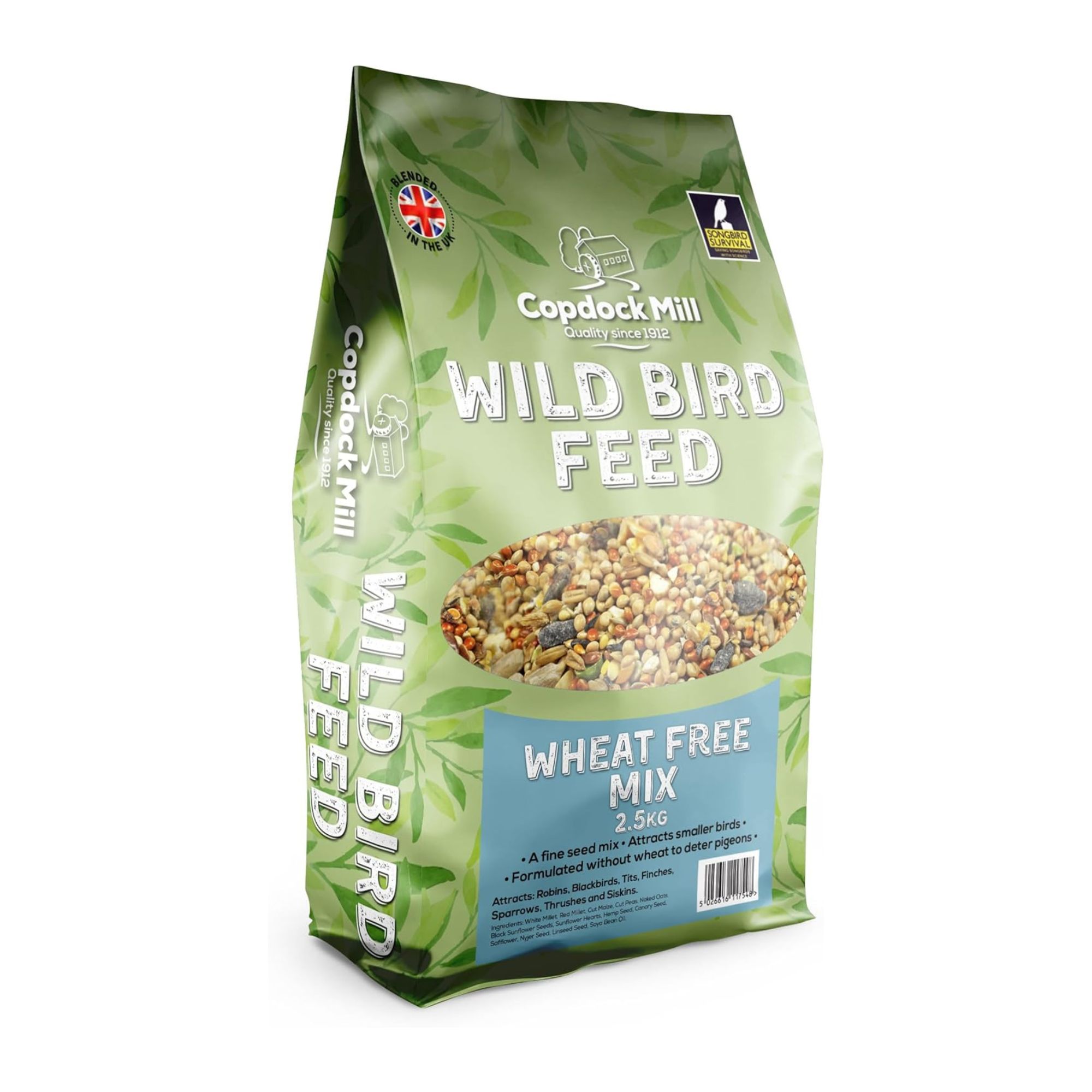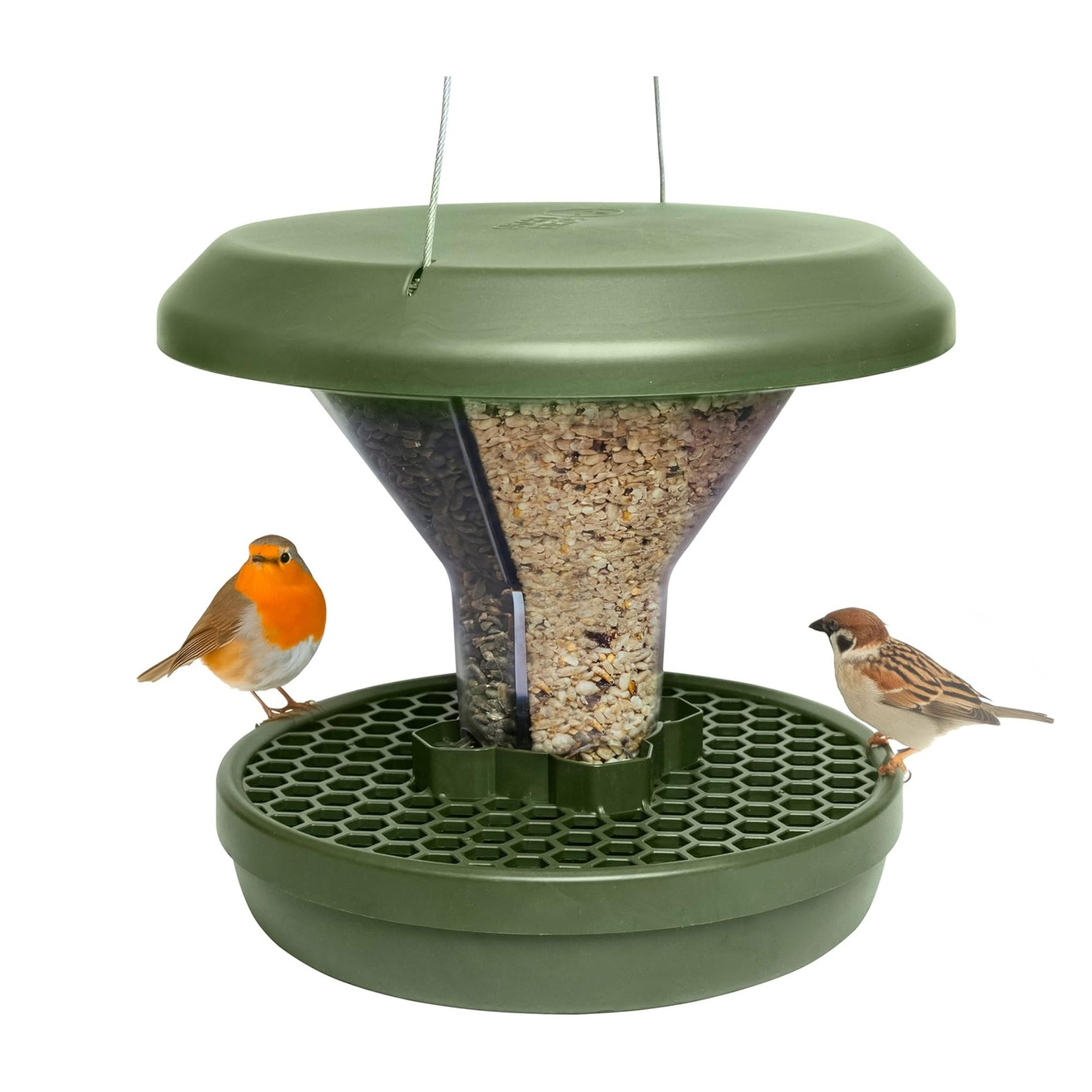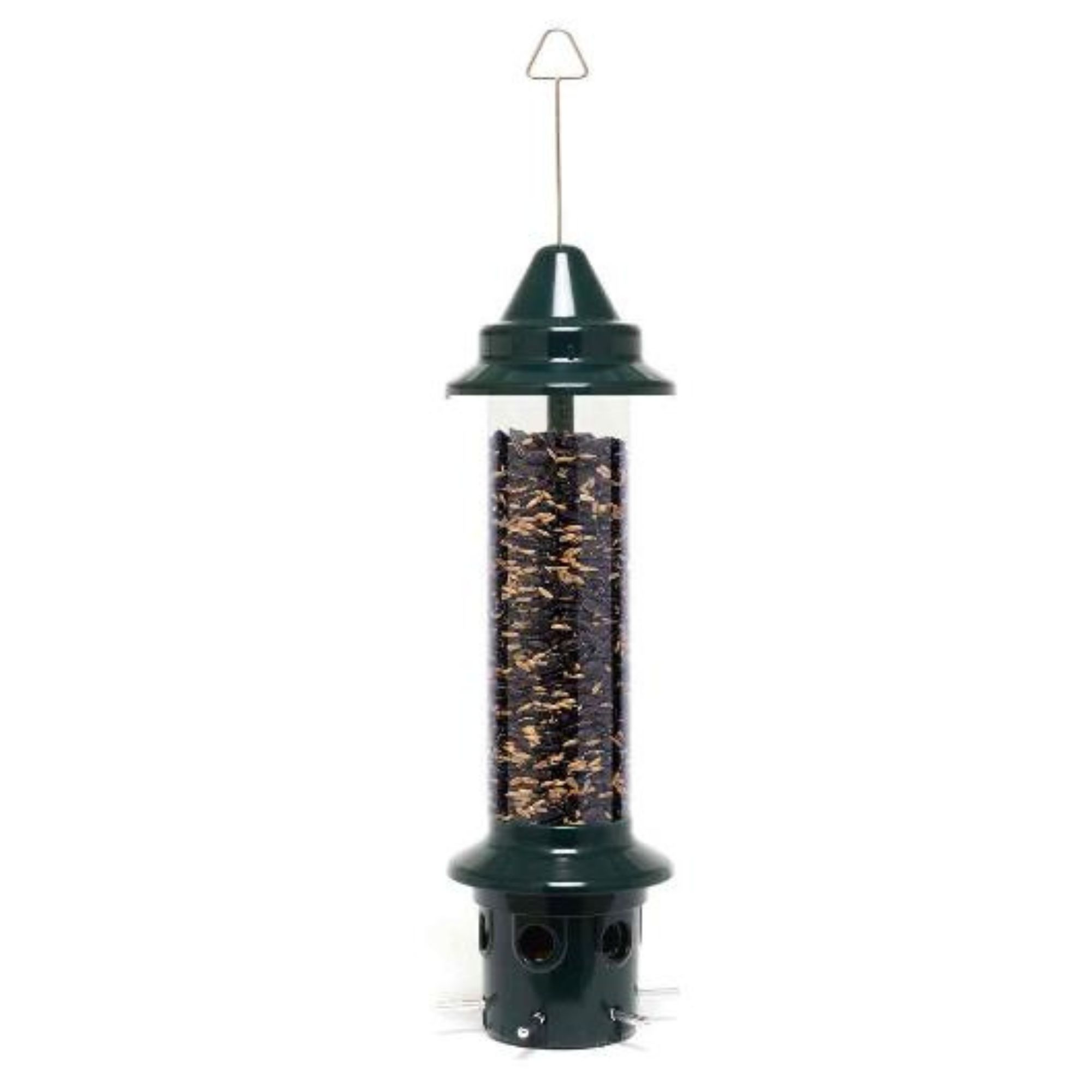How to protect a bird feeder from rats and squirrels - 8 easy ways to keep them at bay this winter
Feed the birds this winter, and the birds only
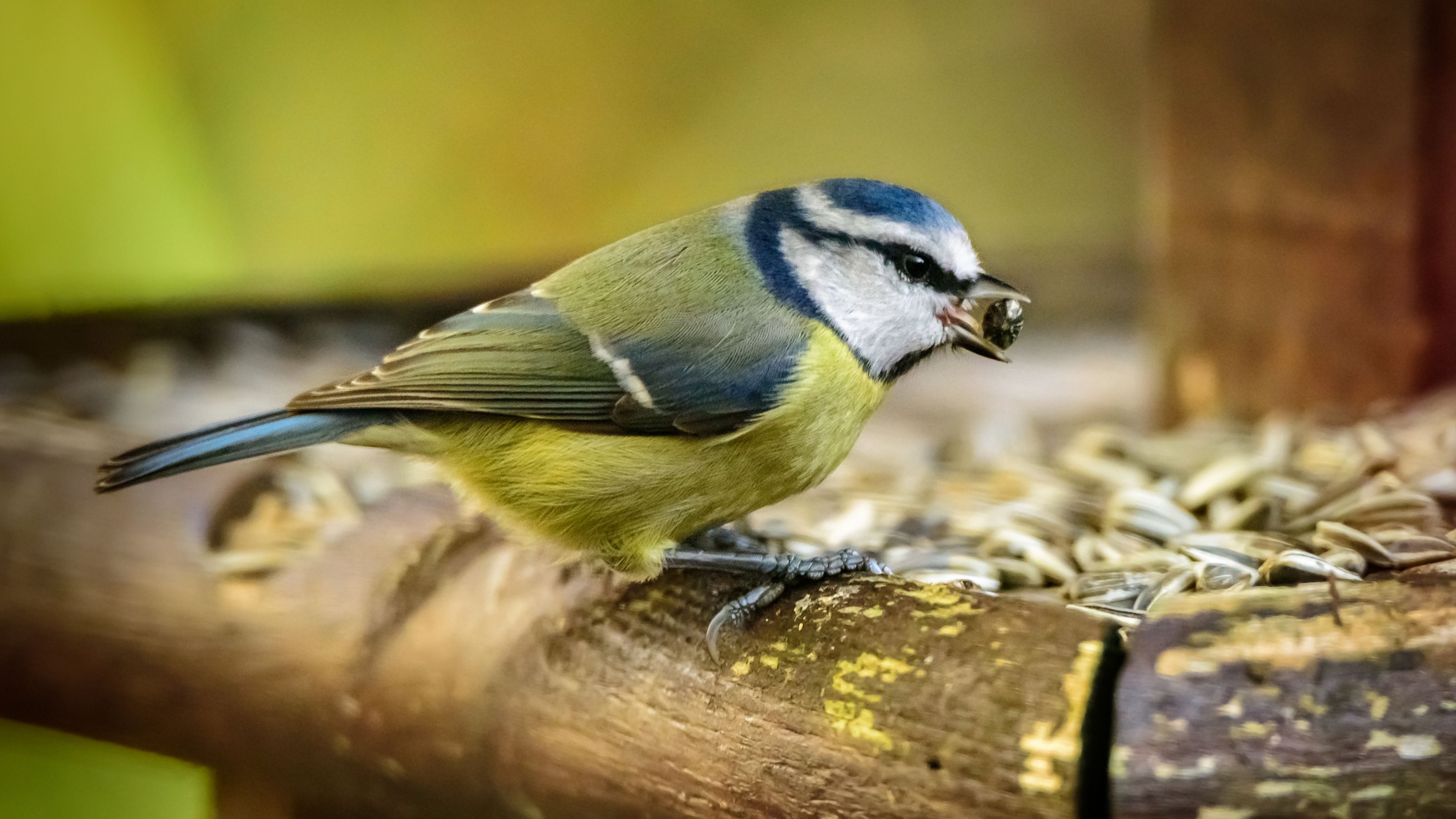

Lauren Bradbury
Wondering how to protect your bird feeder from rats and squirrels? We don’t blame you. These pests will do everything they can to eat your feathered friends out of house and home - even if that means scaling trees and poles to get what they want.
These colder months can be a difficult time for wildlife. And so, when temperatures plummet, and food becomes scarce, it’s our responsibility to head out into the garden and offer the birds a helping hand with some smart wildlife garden ideas. However, as anyone who has ever used a bird feeder or bird table will know, it's basically guaranteed to attract rats and squirrels, too.
And while knowing how to get rid of rats is useful information to have at your fingertips, the first step is to protect a bird feeder from rats and squirrels in the first place. This way, you can continue to feed the many native birds that need our help without any thieving swines getting in the way…
1. Invest in a squirrel-proof feeder
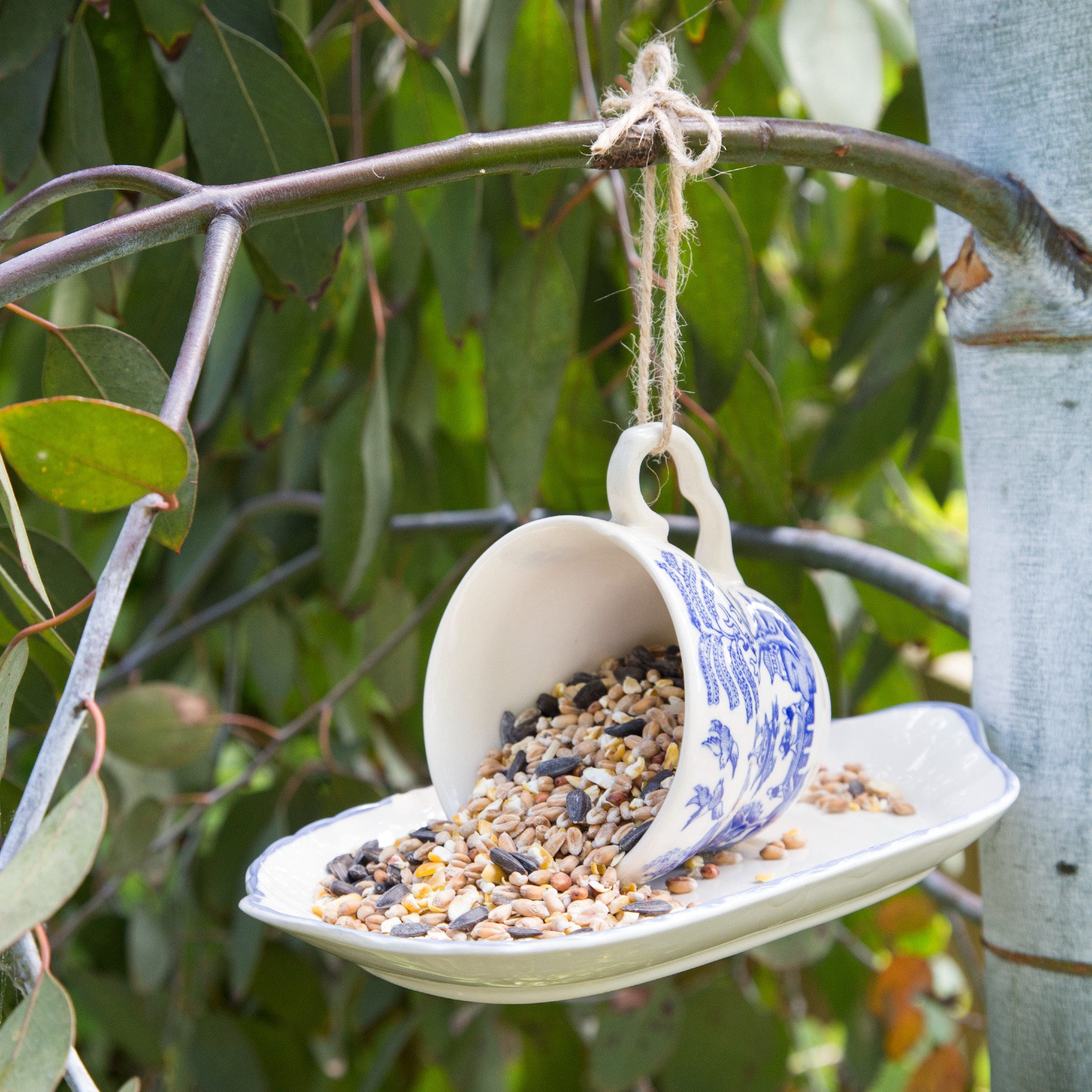
When it comes to figuring out how to protect your bird feeder from rats and squirrels, it's worth noting that a number of bird feeders are specially designed to do just that. You just need to know what to look for.
There are a few options to choose from, such as weight-activated and caged, but if you already have one in the garden, you could just invest in a baffle - a dome that can be installed either above or below the feeder (depending on whether rats or squirrels are the worst offenders). This then stops rats and squirrels from being able to get close to your bird feeder.
This is echoed by gardens expert Harry Bodell at PriceYourJob.co.uk, who says, ‘The installation of baffles can significantly enhance the protection. Dome baffles placed above the feeder can prevent squirrels from jumping onto it. Tube baffles around the pole can hinder their climbing abilities.’
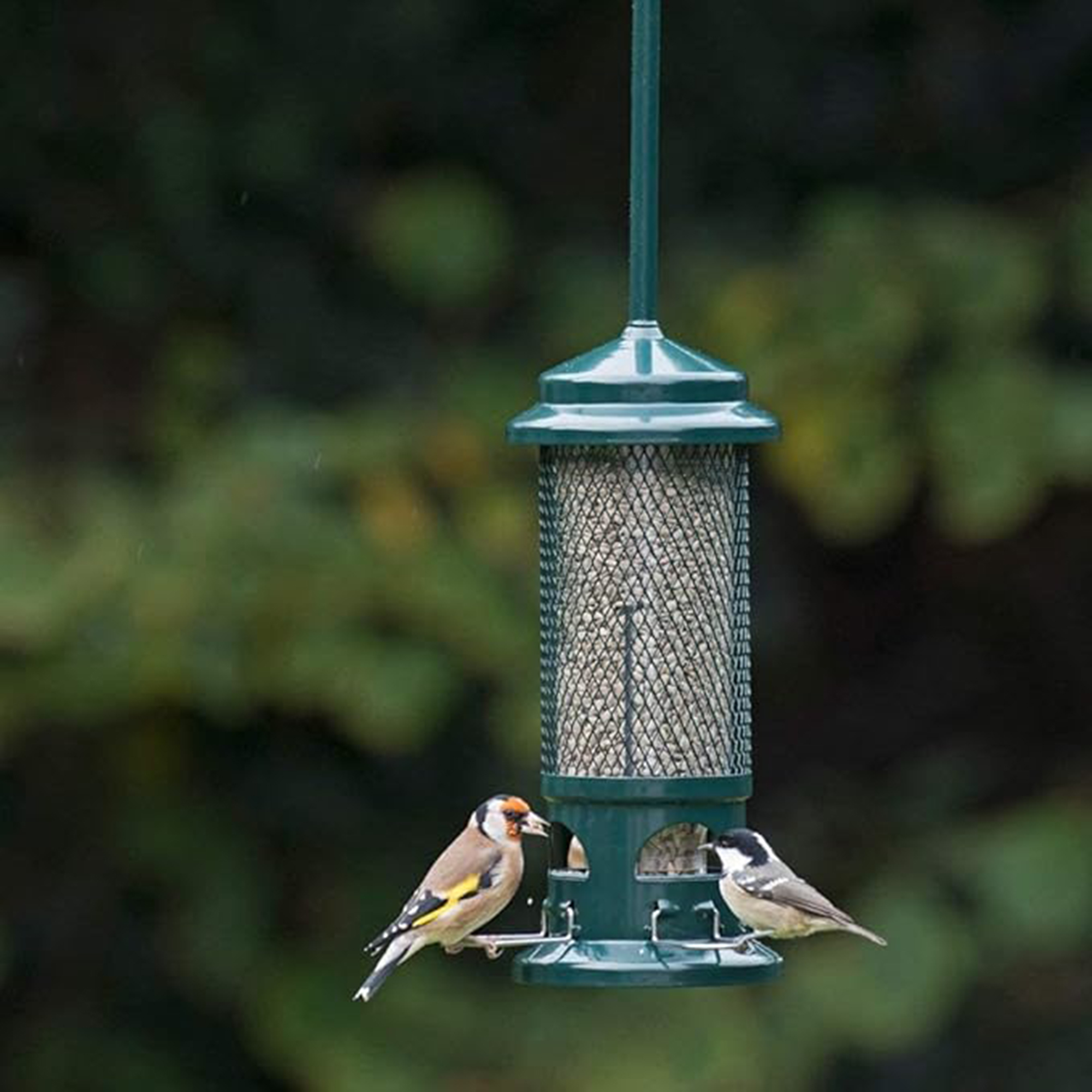
This highly related feeder uses spring technology to allow birds to feed, but excludes squirrels and other pets. It's made from metal and a chew-proof resin so they've got no way through, either.
2. Install feeders out of reach
You can’t really blame other animals for sneaking some bird food when they can. After all, when the food is within reach, why wouldn’t you? So, if you want to protect a bird feeder from rats and squirrels, it’s best to install the feeders out of reach.
Get the Ideal Home Newsletter
Sign up to our newsletter for style and decor inspiration, house makeovers, project advice and more.
'Rodents are competent climbers, so they can and will scale trees and poles to access bird feeders,' says Eric. ‘'Hanging your bird feeders on a sturdy branch higher up the tree will deter them to a degree, as they are less likely to climb in search of food.'
He goes on to add that clinging birds that feed from hanging feeders, such as the Tit family, will also prefer a feeder hung higher up, as it provides extra protection from predators on the ground, such as cats and foxes.
So, grab a ladder and move your bird feeder somewhere that’s a little more difficult for rats and squirrels to get to, and you should find that they aren’t stealing from your feathered friends as much.
3. Get clever with your planting

One of the easiest ways to feed the birds this winter, without having to worry about pesky rats or squirrels stealing their food, is to ramp up the food on offer - but not just with bird seed. Yes, certain plants can also offer a whole host of sustenance for your flying friends.
'Ensure that your garden or green space is as wildlife-friendly as possible, with lots of natural food sources,' says Thomas Hibbert, bird expert at The Wildlife Trusts.
'Plant trees and shrubs that produce berries in autumn and winter, leave seedheads for finches, and let areas grow wild to encourage insects.'
Examples of these plants and trees include holly, hawthorn, pyracantha, crab apple, and birch, which are commonly found in the garden centre or online. An extra bonus is that rats and squirrels don’t tend to eat these other food sources, so the birds will be able to keep them to themselves.
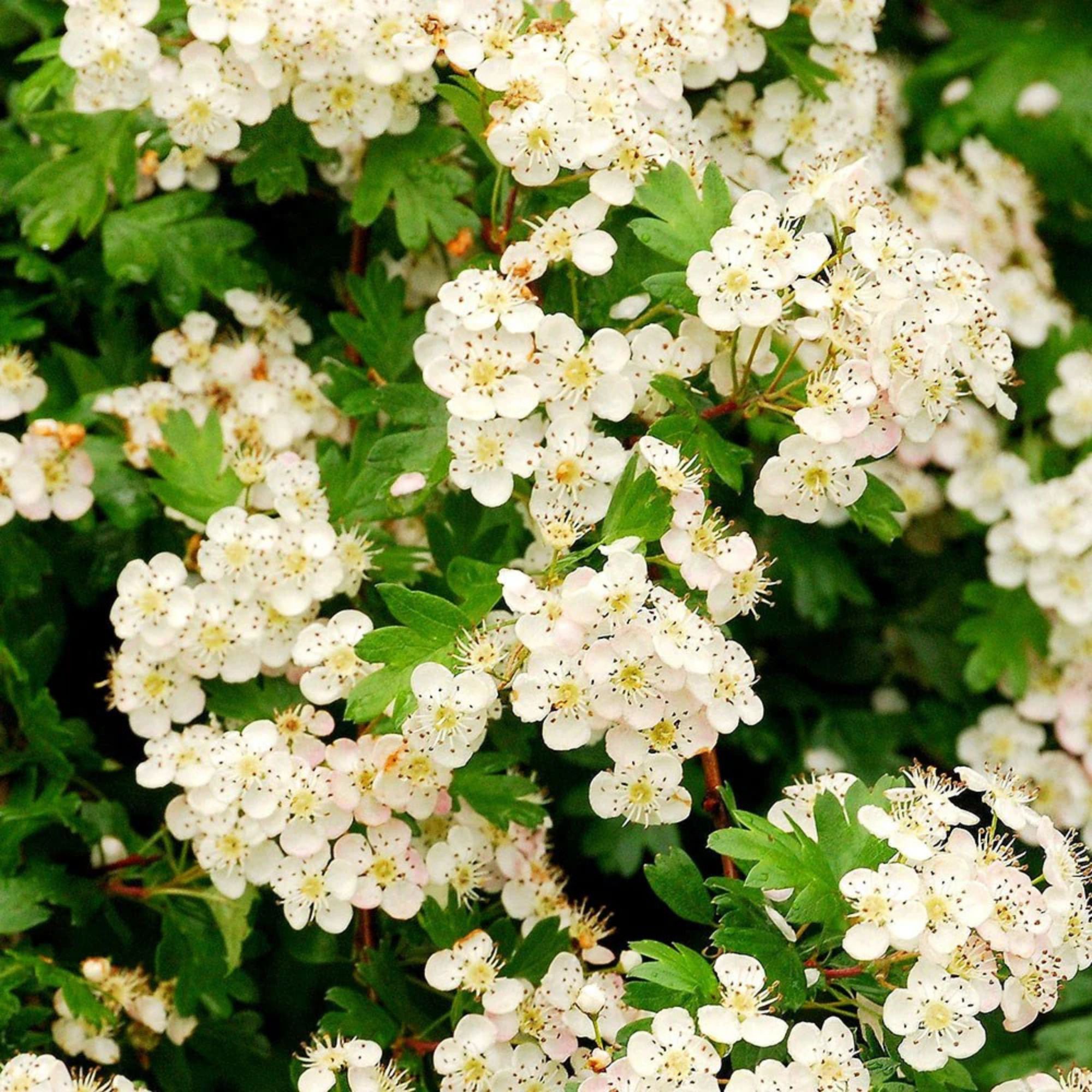
These bare root hawthorn hedging plants promise fragrant white flowers in May, followed by dark red fruit, and glossy green leaves.
4. Mix up your seed offering
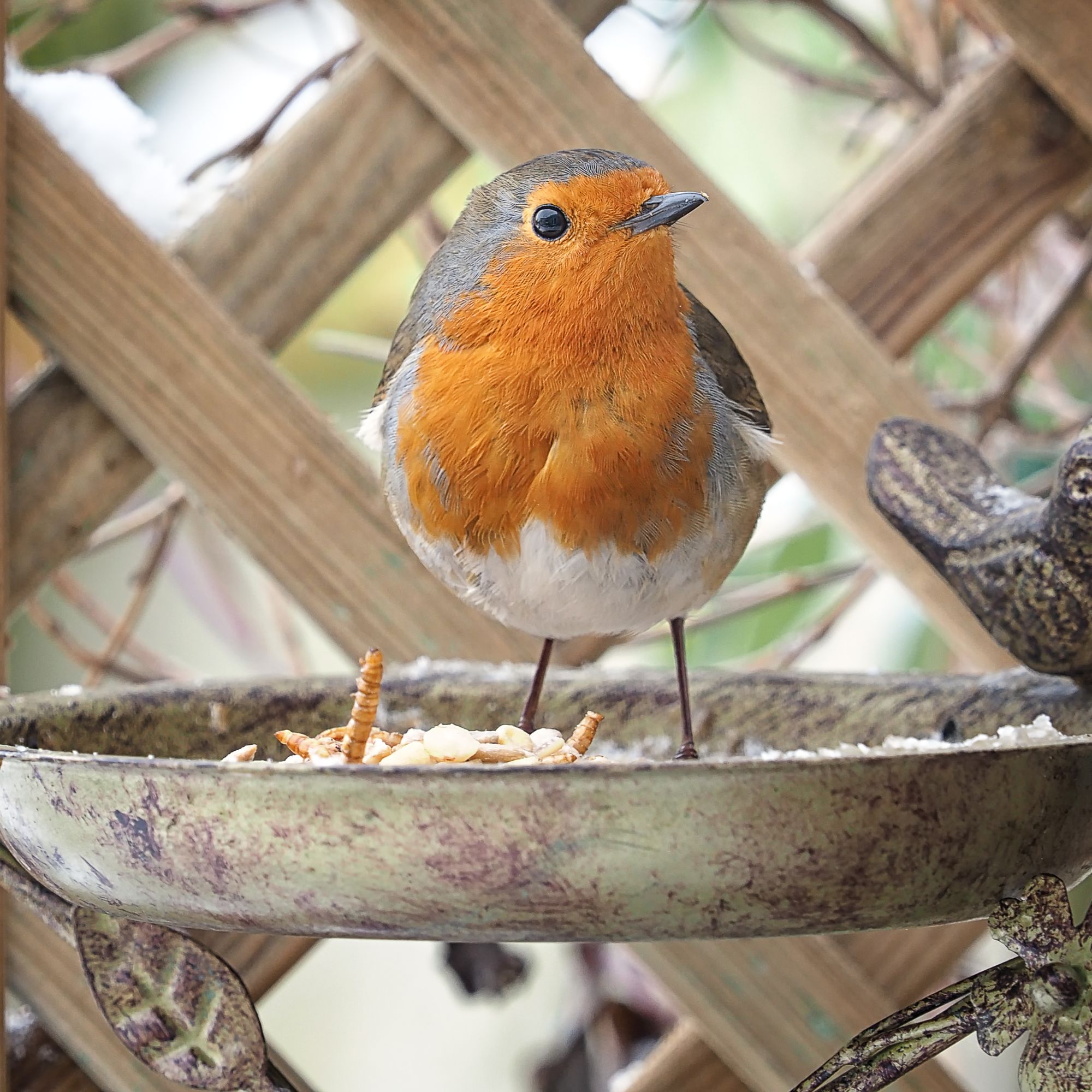
If you're hoping to protect your bird feeder from rats and squirrels, it pays to think outside the box. Because, while they tend to love munching on peanuts and fat balls, they don't love everything that birds eat.
With that in mind, it pays to branch out and fill your bird feeder with seeds that rats and squirrels don’t like. You can find special squirrel-proof mixed bird seed fairly easily, but you can also buy safflower seeds, niger seeds, and millet separately if you want to mix them into the bird seed you’re already using.
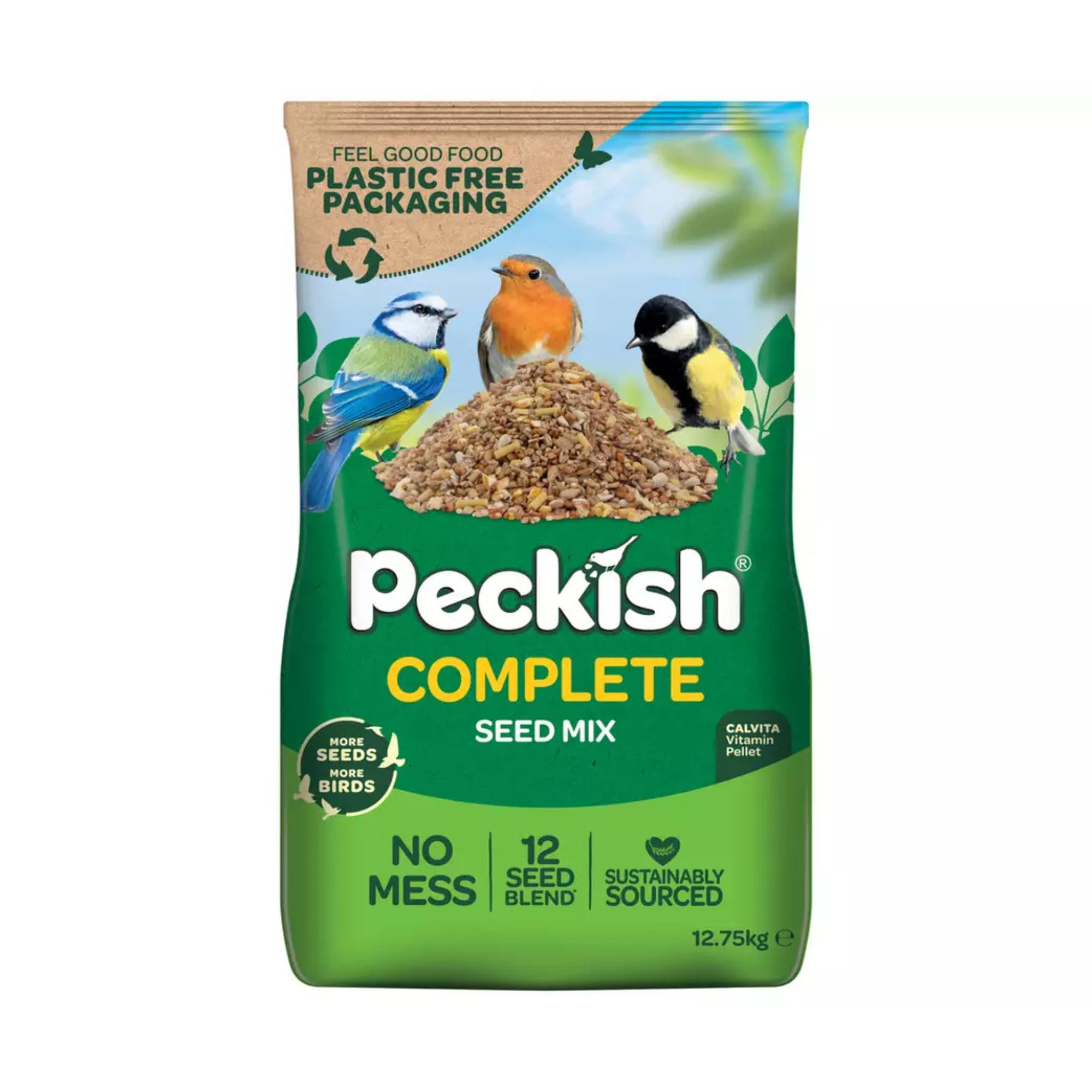
Packed with 12 different ingredients, this bird seed will offer a variation of seeds for the birds in your garden. And maybe even some that won't entice squirrels and rats.
5. Add a little something extra
Another easy way to protect your bird feeder from rats and squirrels? Add something that they really don't want to eat! This works for birdfeeders and for how to stop squirrels from digging up bulbs.
'There are several smells and tastes that rodents don’t like, including cayenne pepper, pepper, peppermint, and garlic,' says Eric Michels, Head of Pro at CJ Wildlife. In fact, the chilli powder bird feeder hack is said to be extremely effective.
'While these smells are unappealing to rodents, birds can’t actually taste them, so sprinkling a little cayenne pepper into your bird feeders, for example, will act as an additional deterrent.' You can even buy bird feed that’s already infused with cayenne pepper if you don’t have any handy.
As squirrels and rats also hate the smell of peppermint, you can also use that to your advantage. Harry says, ‘Soaking cotton balls in peppermint oil and placing them near to the feeder can also be effective as the strong scent repels rodents.’
Just remember that you’ll need to replace the cotton balls every few days for this to remain effective - especially if it rains.
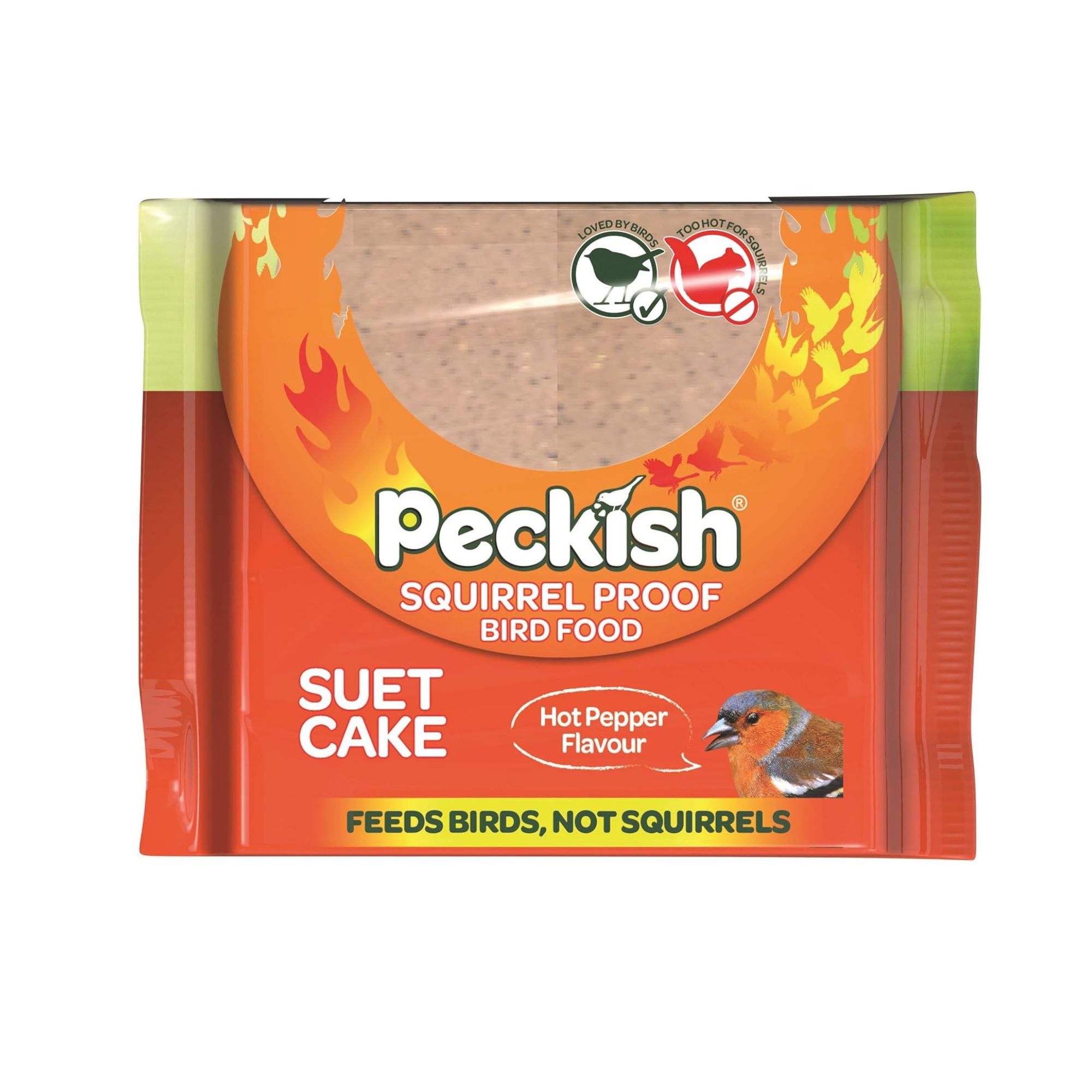
This suet block is infused with hot pepper to deter squirrels and rats, but it'll still be delicious for the birds in your garden to enjoy.
6. Don’t scatter feed on the ground
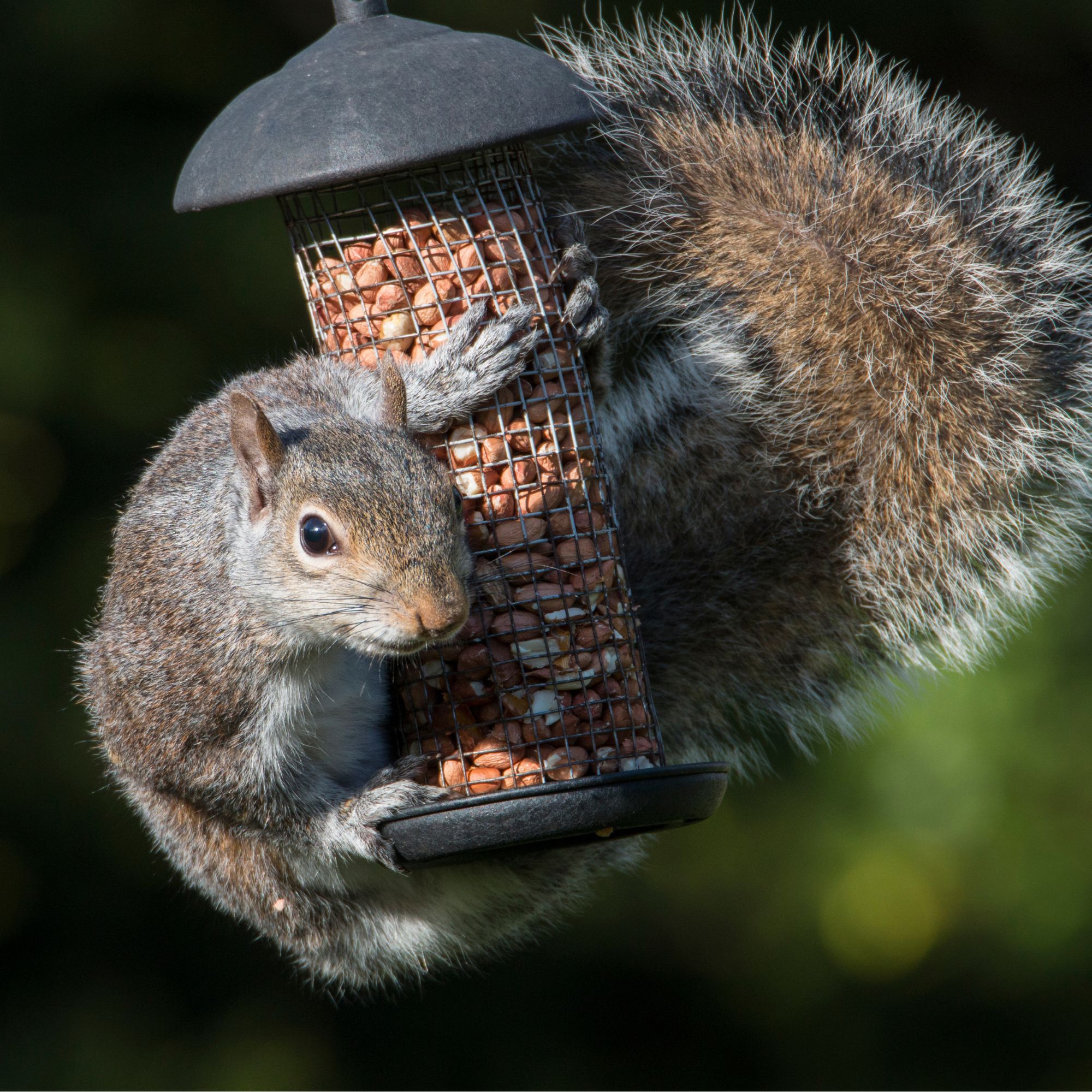
Although it’s always lovely to see birds hopping about on the grass, it's a surefire recipe for trouble. As such, one of the best ways to protect your bird feeder from rats and squirrels is to avoid the temptation to scatter food underneath it.
Harry says, ‘Maintaining a clean feeding area is crucial for deterring these pests. Regularly removing fallen seeds eliminates a potential food source for rodents, and clearing any debris or clutter within the vicinity of the feeder removes potential hiding spots.’
Of course, this means you’ll have to head out into your garden regularly, as birds can often be messy eaters. But you need to be careful when refilling your feeder, too.
Eric adds, 'Always make sure you put bird food in a specialist feeder and clear up any spillages when refilling immediately.'
7. Make the most of smart technology
In today’s modern age, smart technology is everywhere - and you can use it inside and outside your house. Yes, you can even use it to protect a bird feeder from rats and squirrels!
There are many rodent and squirrel-proof smart bird feeders out there, and they have been designed to protect birds and their food in a variety of ways. Some come with cameras, while others come with weight detection and automatic doors for birds… and birds only.
In fact, Eric says that 'CJ Wildlife’s Leto Smart Feeder has built-in technology that allows birds below 70g to perch and feed, but if any creature above 70g sits on the perch, it is weighed down and triggers the opening to be covered, restricting access to the delicious bird food.'
Of course, this is probably the most expensive option on the list - but it’s also probably one of the most effective ways to protect a bird feeder from rats and squirrels.
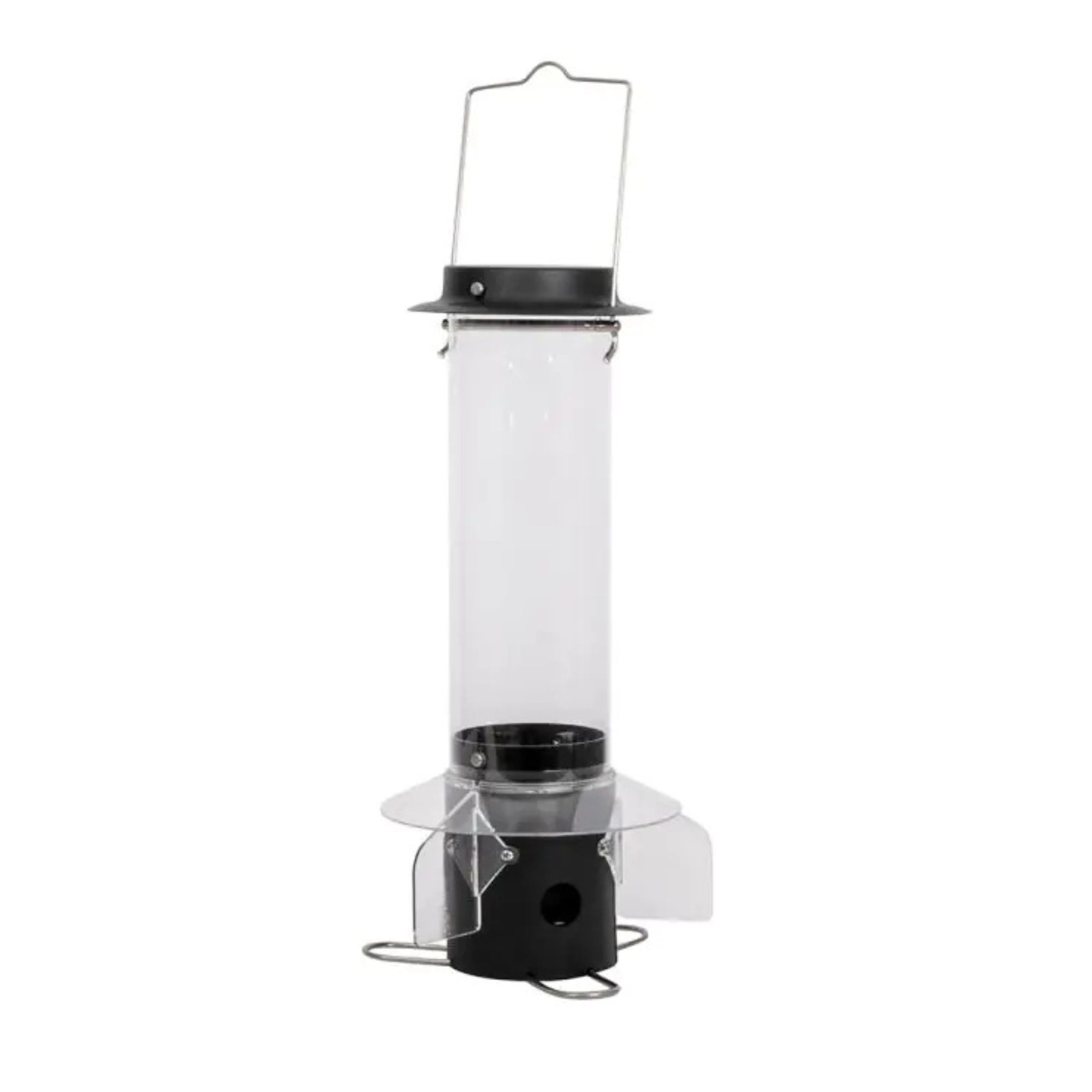
This bestselling bird feeder is as squirrel-proof as they come and has a large capacity that holds 1kg bird seed, so you shouldn't need to fill up too often.
8. Aim for 'just enough' food
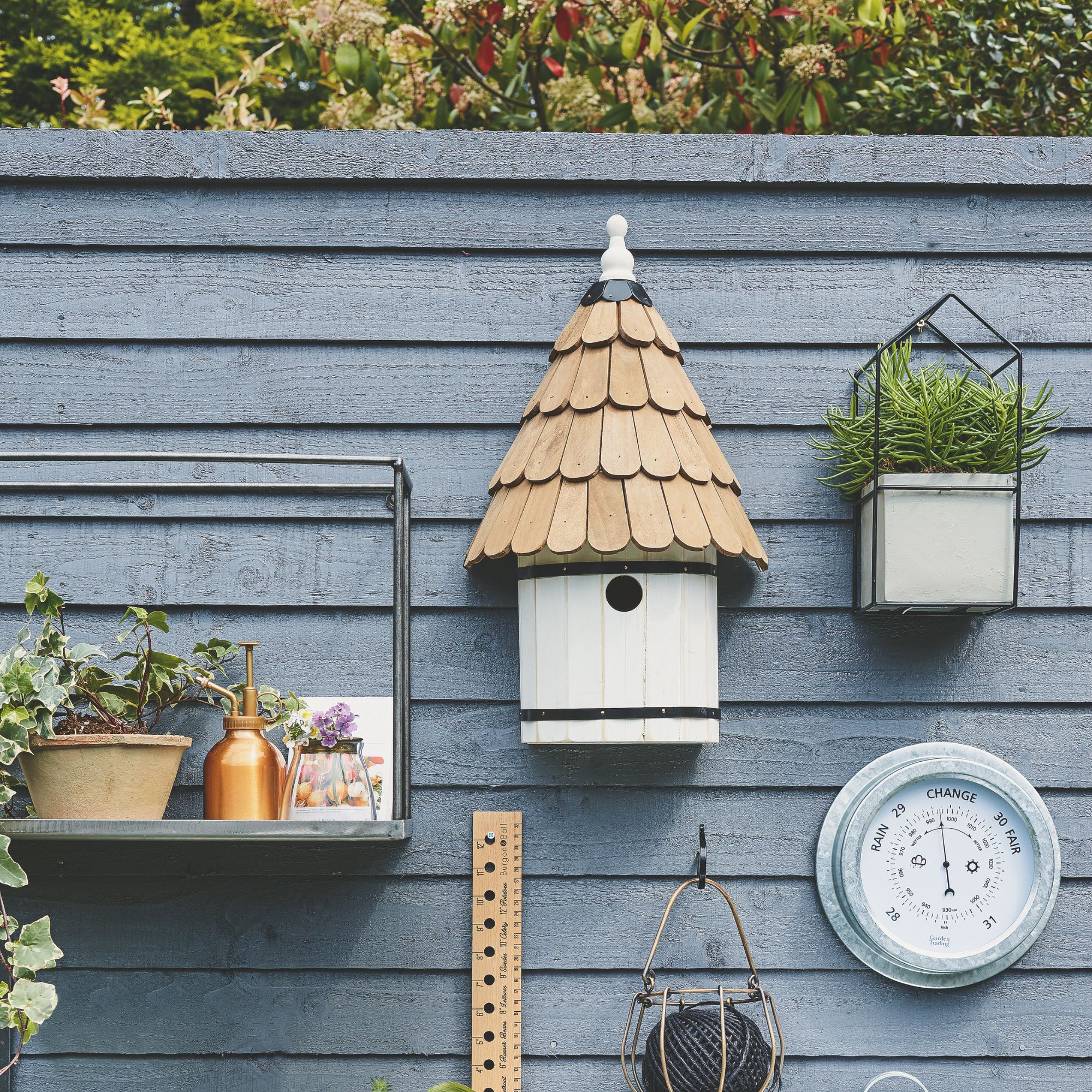
It's good to be generous, but it doesn't do to be too generous with your bird food – especially if you want to protect your bird feeder from rats and squirrels.
'It is important you only use the amount of bird food or seed that you know (or estimate) will be eaten by birds within two or three days at most,' says Eric.
'Leaving bird feed out for too long not only means food could spoil and allow bacteria to build up, but having a substantial amount of food constantly available also increases the risk of attracting rodents in search of something to scavenge.'
Thomas adds that you should also 'ensure you clean any feeders regularly to prevent disease' and deter nightime scavengers.
FAQs
Do squirrels damage bird feeders?
Yes, squirrels can very easily damage bird feeders. This is largely due to the fact that they are often way too heavy and big for a bird feeder - but they’ll still climb and hang from it to eat the food inside.
Alongside this, they’re extremely stubborn and will do anything they can to get the food inside - which means they’ll often break the bird feeder in an effort to get closer to the bird seed.
How do you store bird feed?
'Making sure bird feed is stored correctly is important as it will deter unwanted vermin, as well as ensure food holds its nutritional value for birds,' says Eric.
'If rats and mice are able to get to food in your shed or garage, they will keep coming back for more! Always store food in a dry, cool place, in an airtight container with a secure lid, preferably raised off the floor to act as an additional deterrent.'
So, now that you know how to protect your bird feeder from rats and squirrels, it's time to get out there and feed the birds (tuppence a bag!) and help them make it through the cold winter months ahead.
Honestly, the sight of them happily flitting around your garden on a frosty morning will make it more than worth the hassle!

Kayleigh Dray became Ideal Home’s Acting Content Editor in the spring of 2023, and is very excited to get to work. She joins the team after a decade-long career working as a journalist and editor across a number of leading lifestyle brands, both in-house and as a freelancer.
- Lauren BradburyContent Editor (House Manual)
-
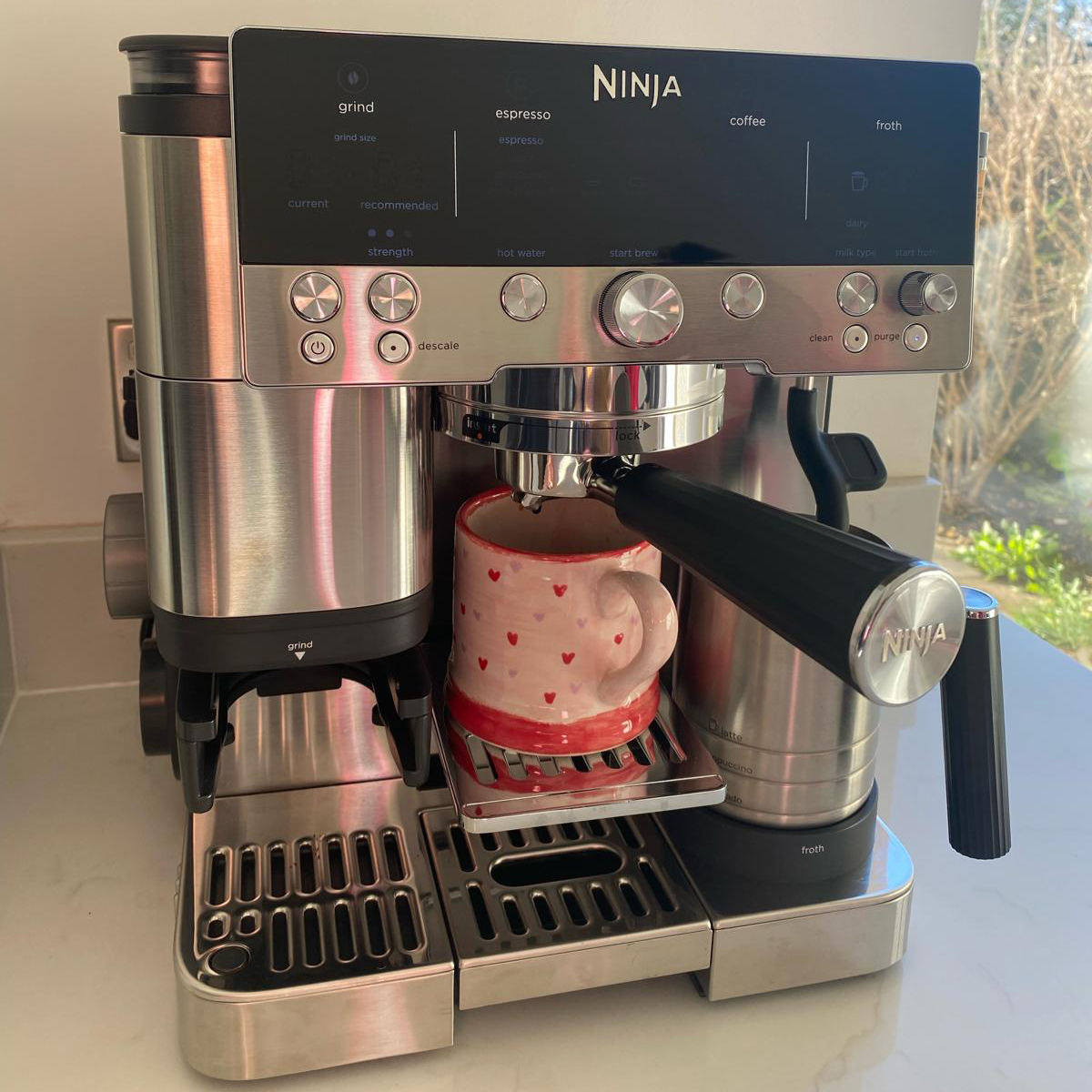 My go-to Ninja coffee machine is on sale for Easter weekend
My go-to Ninja coffee machine is on sale for Easter weekendIt makes coffee shop quality achievable at home
By Molly Cleary
-
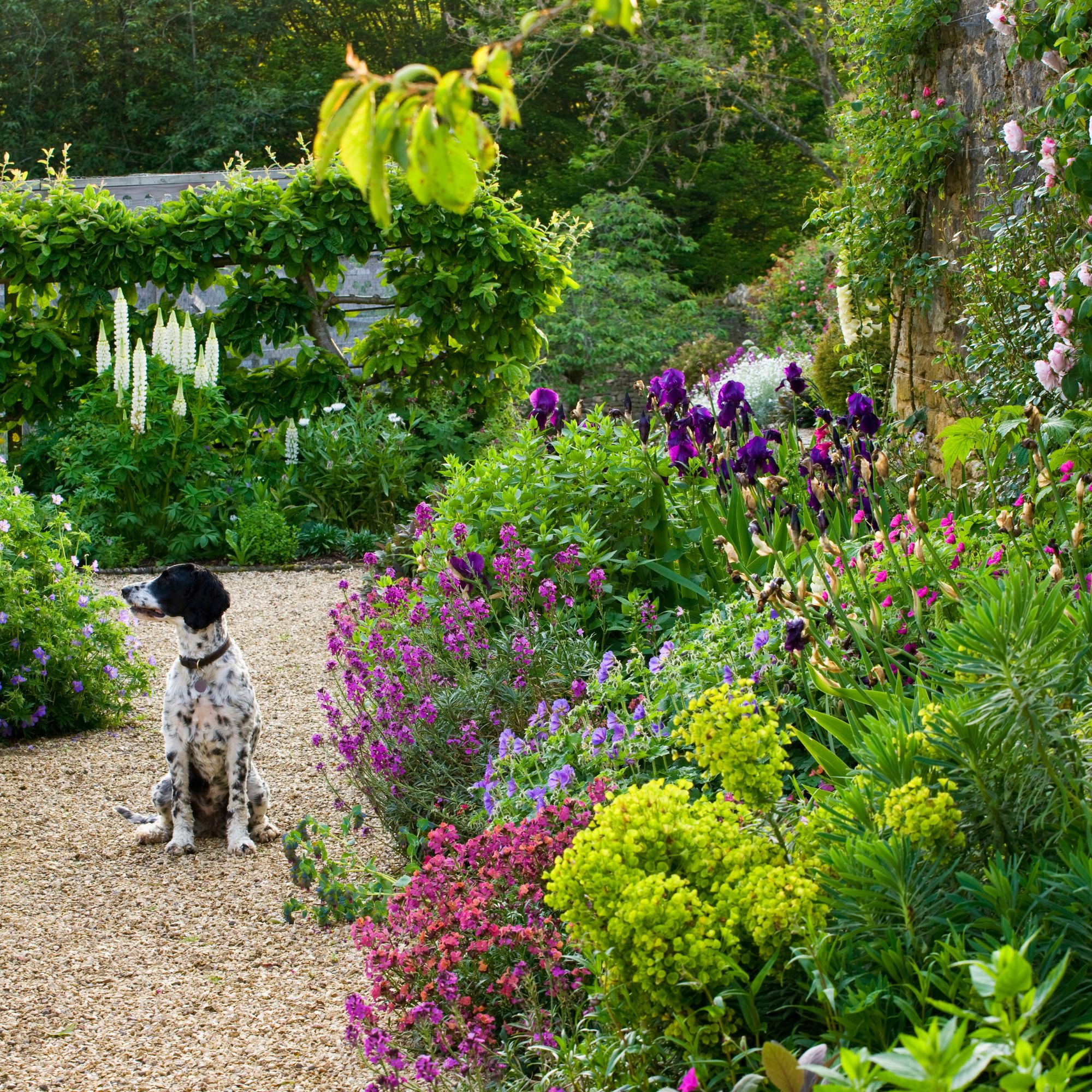 When to plant out annual flowering plants for vibrant, colourful garden borders – and give them the best start, according to experts
When to plant out annual flowering plants for vibrant, colourful garden borders – and give them the best start, according to expertsNot sure when to plant out annual flowering plants? We've got you covered...
By Kayleigh Dray
-
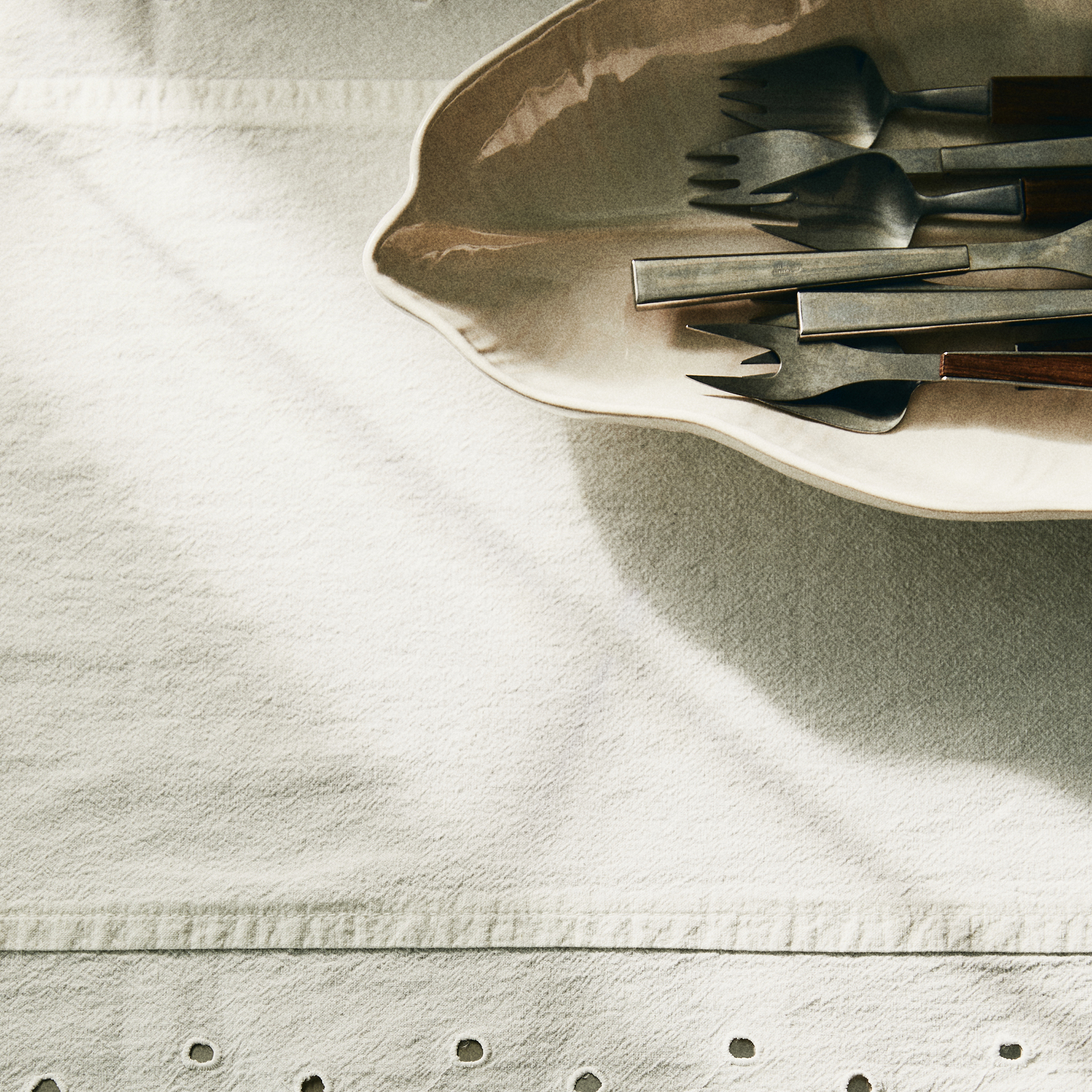 I'm a kitchen decor editor and didn't like this tableware trend - until I saw H&M Home's designer-look plates
I'm a kitchen decor editor and didn't like this tableware trend - until I saw H&M Home's designer-look platesThey made it easy to justify a new crockery set
By Holly Cockburn
-
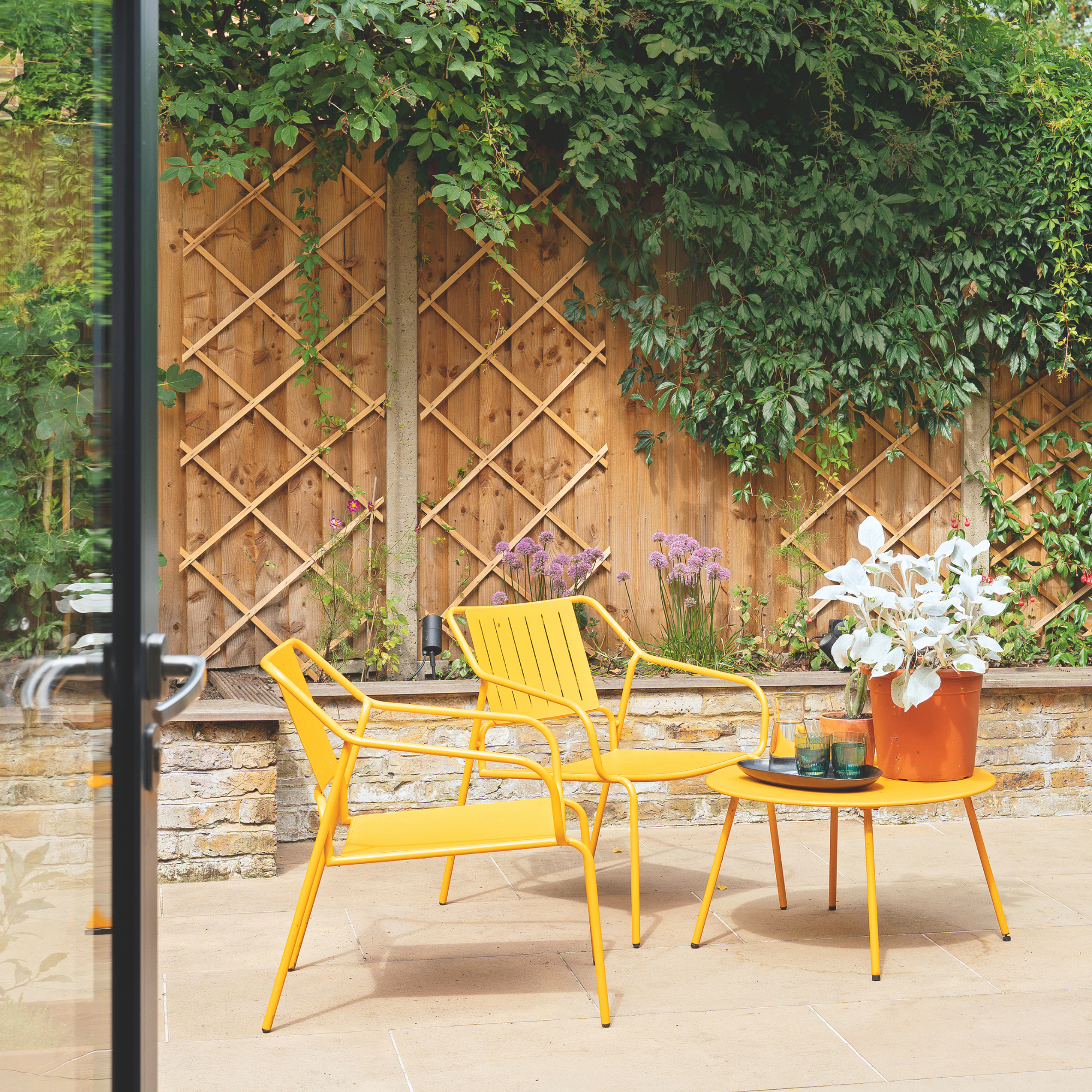 I’m seeing pastel garden furniture at all my favourite brands this spring, but QVC’s sorbet collection impressed me the most
I’m seeing pastel garden furniture at all my favourite brands this spring, but QVC’s sorbet collection impressed me the mostFresh pastel shades are a great way to liven up your outdoor space
By Kezia Reynolds
-
 I spent the afternoon looking through Wayfair's garden sale – these are the 6 pieces I'm buying immediately for summer
I spent the afternoon looking through Wayfair's garden sale – these are the 6 pieces I'm buying immediately for summerThese are my must-have garden buys from the sale
By Holly Reaney
-
 I’ve found the perfect alternative to John Lewis’ sold-out striped garden chair – and you won’t believe where it's from
I’ve found the perfect alternative to John Lewis’ sold-out striped garden chair – and you won’t believe where it's fromJohn Lewis' Sling Garden Chair is one of the most stylish pieces of garden furniture I'd seen – until I tracked down this QVC lounge chair...
By Kezia Reynolds
-
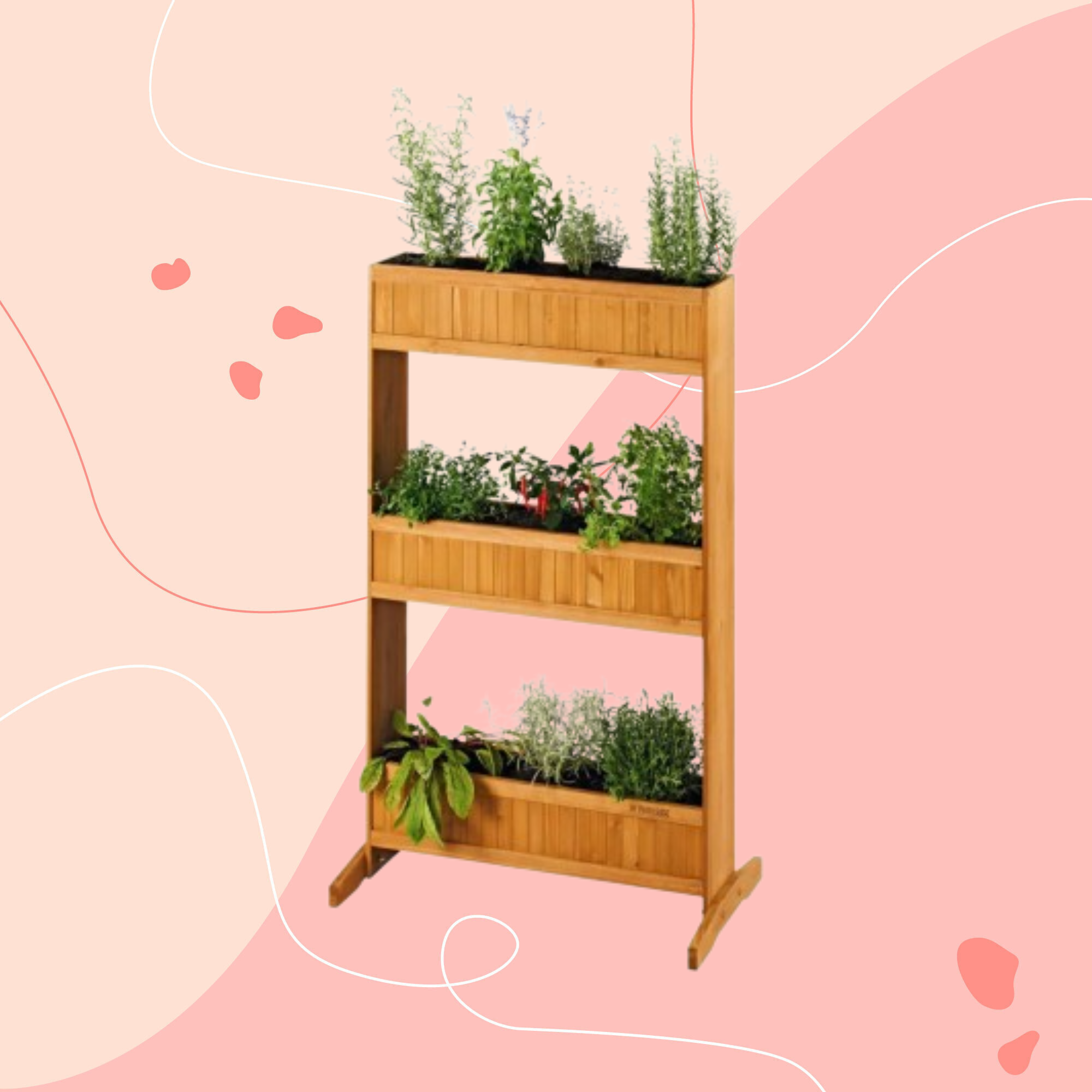 Lidl is selling a smart tiered planter that will unlock extra planting space in a tiny garden or balcony
Lidl is selling a smart tiered planter that will unlock extra planting space in a tiny garden or balconyWhy I've been eyeing this planter up for my tiny garden
By Kezia Reynolds
-
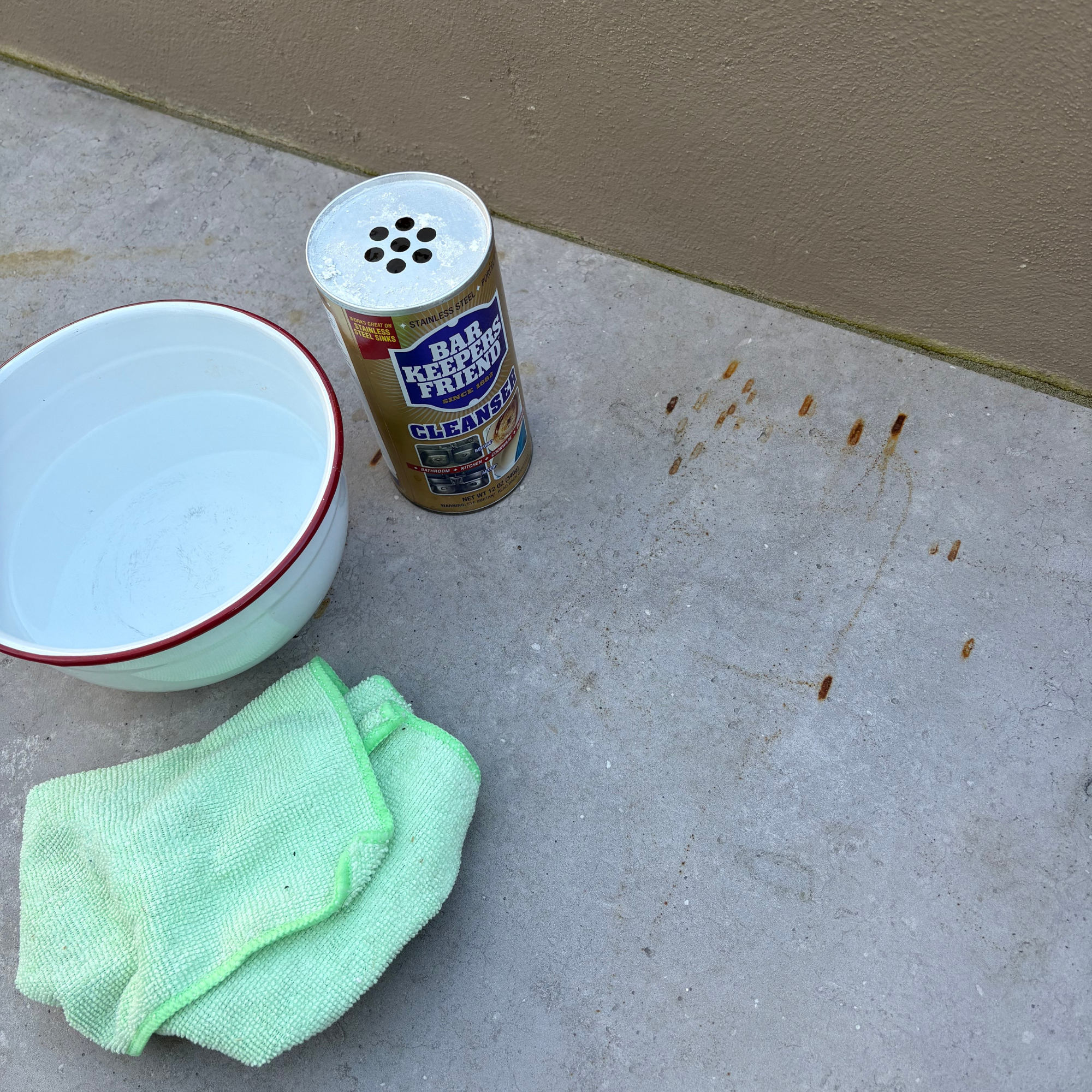 I’ve found the best solution for cleaning stains from a patio - and it’s only £8 on Amazon
I’ve found the best solution for cleaning stains from a patio - and it’s only £8 on AmazonThe stains practically vanish!
By Kezia Reynolds
-
 Lidl’s £15 sun sail is everything you need to create a shady oasis in your garden – and it’s on sale right now
Lidl’s £15 sun sail is everything you need to create a shady oasis in your garden – and it’s on sale right nowWith two stylish colours available, the sun sail will make a chic yet practical addition to any of your garden.
By Kezia Reynolds
-
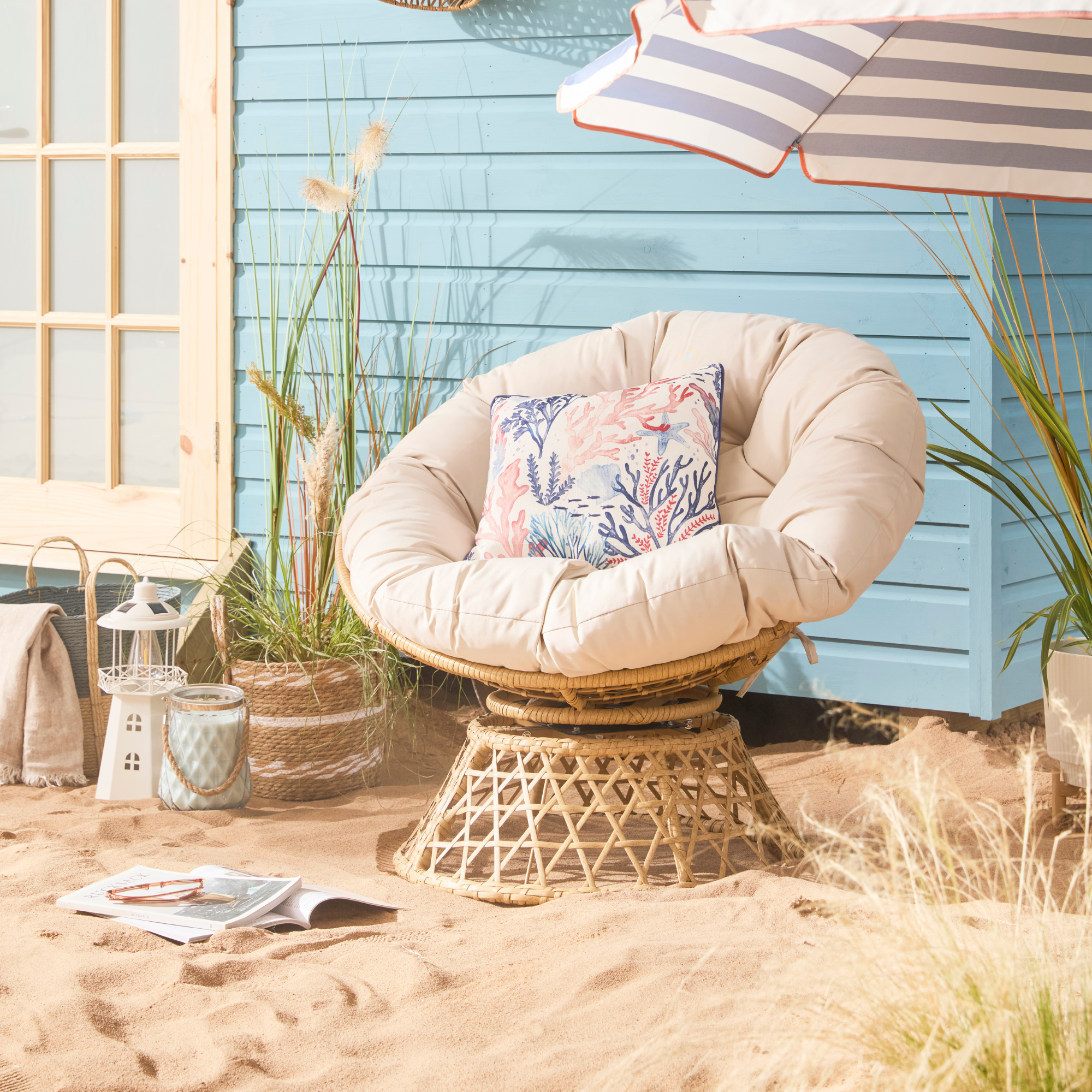 B&M has nailed 2025's breakout garden furniture trend - it's one of the most affordable and stylish I've seen
B&M has nailed 2025's breakout garden furniture trend - it's one of the most affordable and stylish I've seenGet the luxe look for less
By Kezia Reynolds
-
 I was shocked to discover a treasure-trove of designer-look garden furniture at La Redoute on sale right now – 6 chic standouts
I was shocked to discover a treasure-trove of designer-look garden furniture at La Redoute on sale right now – 6 chic standoutsGive your garden that high-end look
By Sara Hesikova
